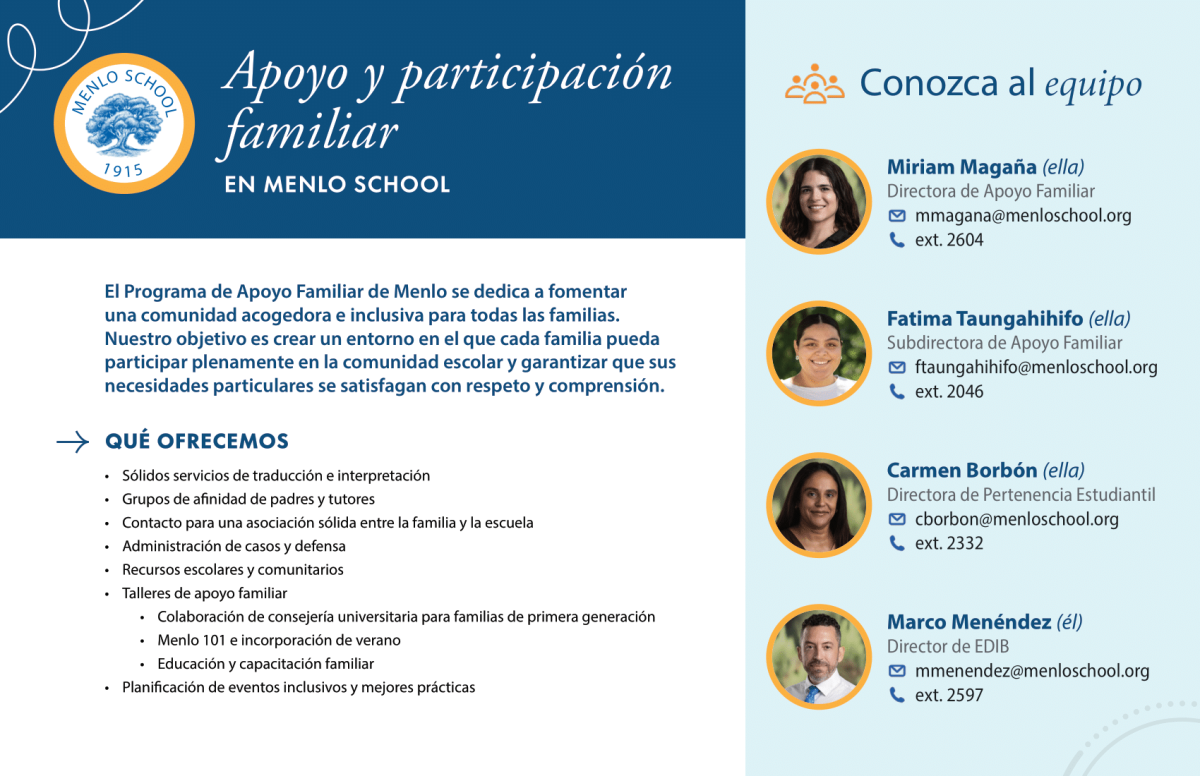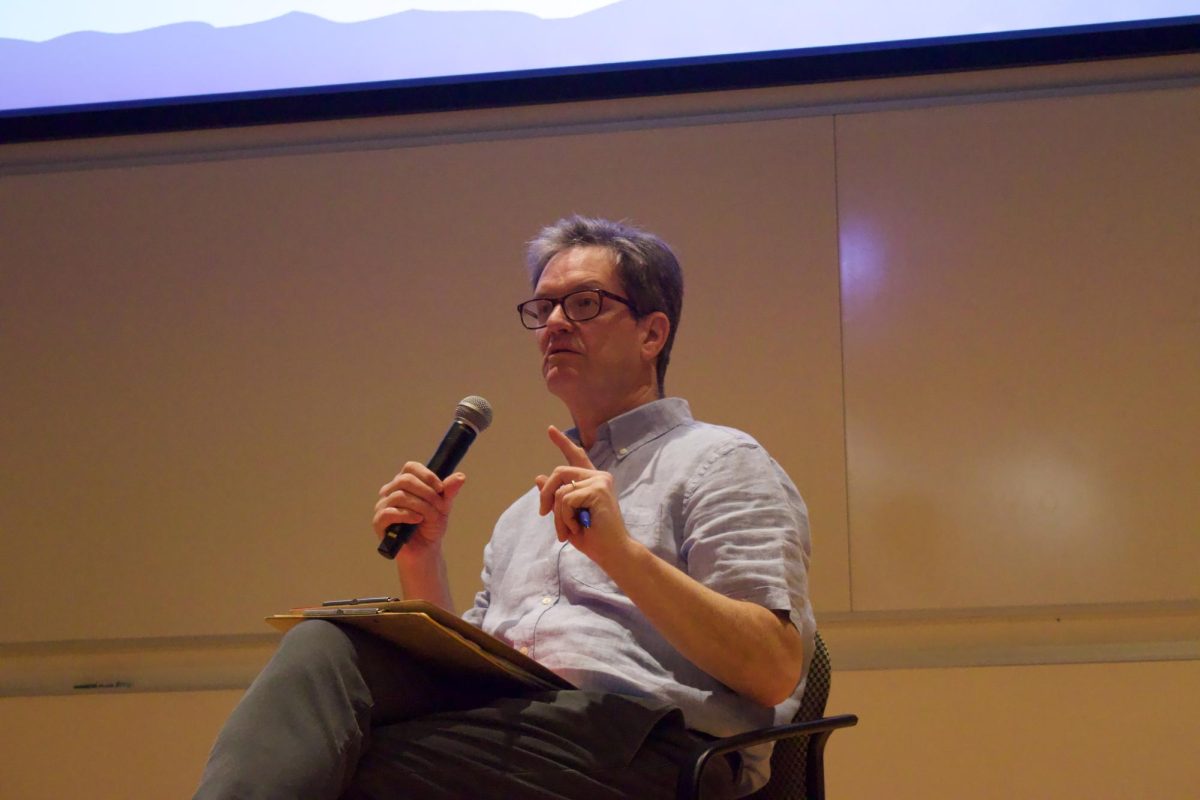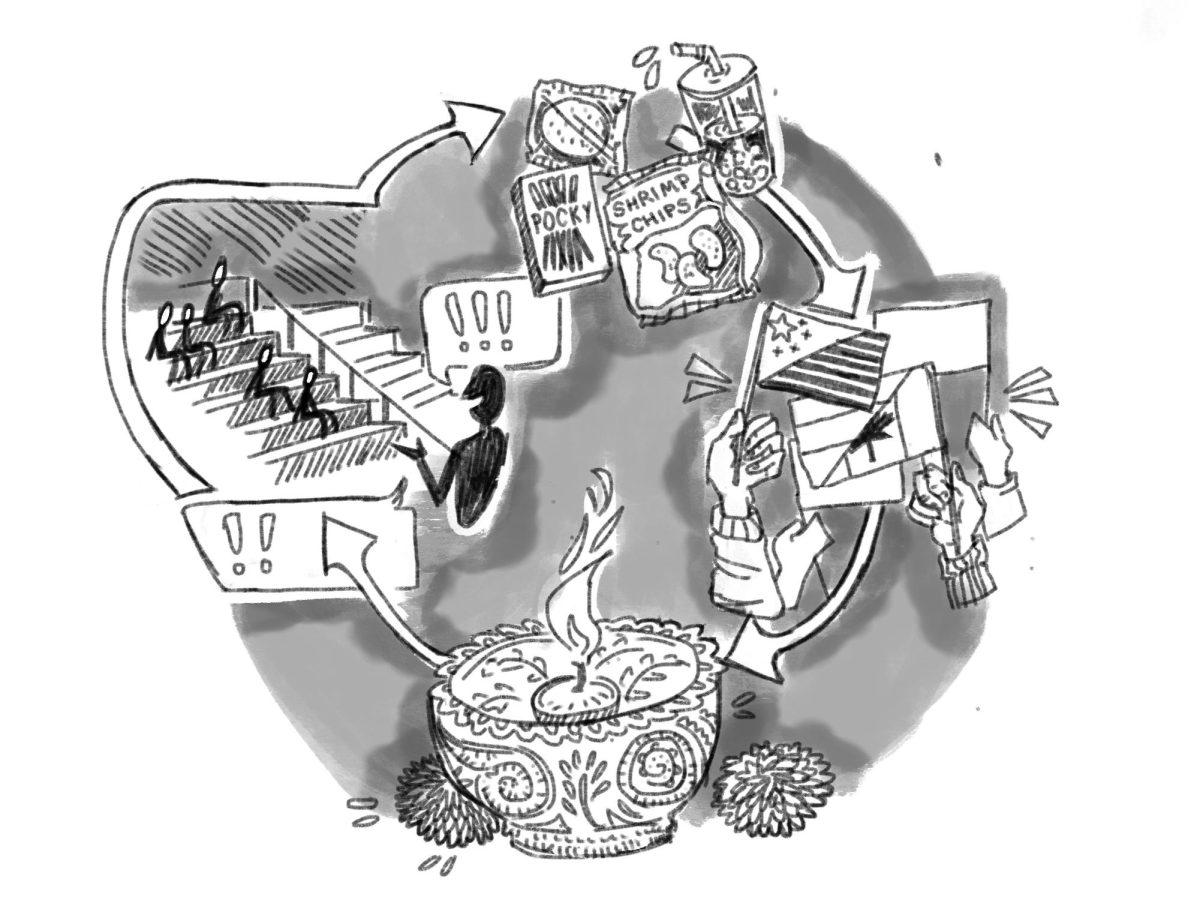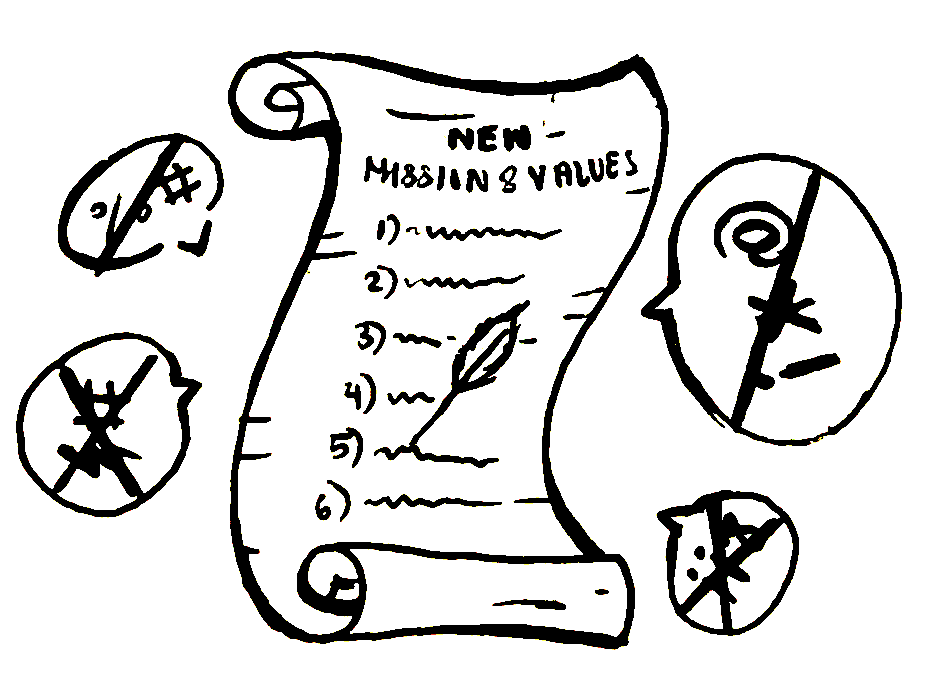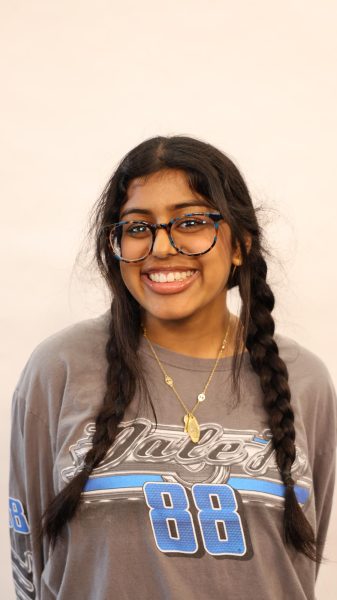On election night, freshman Harper Marek expected to stay up late to watch a tight battle for the presidency, but watching President-elect Donald Trump vastly outperform expectations in state after state, Marek decided to go to bed. “I think I was just mostly surprised that Trump won at all,” she said. “Everyone has their own bubble, and in mine, I just really expected Kamala to win.”
Senior Liam Krenz, a supporter of Vice President Kamala Harris, saw this bubble drive polarization along party lines. “When I was watching the election with some family friends, they referred to Trump voters as idiots, and that kind of pissed me off,” Krenz said. “I feel what we really need is to view the other side as people and then start bridging the gap between the two sides.”
Indeed, one Trump-voting senior, who agreed to speak on the condition of anonymity, believes that Menlo is not a welcoming place for students with conservative views. “Teachers and administration members have lots of bias that they frequently express in conversation,” he wrote in an email to The Coat of Arms. “I’ve found that other students are a lot more accepting.”
The senior was also “very happy” that Trump won. “I think his cabinet is very strong, […] I strongly agree with Trump’s foreign policy [and] I think that our southern border is completely out of control,” he wrote.
Krenz, on the other hand, awaits the day Trump leaves office. “My hope is that we’ll get another four years of Trump, and then we’ll kind of be done with this more radical era in American politics,” he said.
Junior Lily Hinshaw wasn’t surprised by the result. “I thought [the election result] was kind of expected, and I think a big role that played into it is the economy and […] people’s misconceptions about different [candidates’] policies […] to fix that issue,” she said.
Polls conducted before the election indicated the outcome could go either way. During one pre-election seminar, Upper School Director John Schafer said that one could simply flip a coin to predict the winner.
After the election, Schafer sat down for an interview with The Coat of Arms. “It was a much more decisive and convincing victory than I was assuming,” he said.
Trump swept all seven swing states and made significant gains in Democratic strongholds in his victory over Vice President Kamala Harris. Trump also won the popular vote, a feat no Republican candidate had accomplished since George W. Bush in 2004, and Republicans won control of Congress.
Schafer agrees with Hinshaw that the economy played a large role in the outcome of the election. In a Nov. 7 post-election lunchtime debrief, Schafer said that many Americans have nostalgia for the Trump presidency and remember the economy as being better than it really was.
President Joe Biden was the Democratic nominee, running for his second term, until he announced his withdrawal from the election on July 21 and immediately endorsed his vice president, Harris. Biden’s decision came after facing pressure from his party and advisors due to his historically low popularity, concerns about his age and a lackluster debate performance.
Schafer believes that, in addition to it being a “change election,” Trump performing well among Hispanic voters, and differing campaign strategies, President Joe Biden played a significant role in Harris’ defeat. “I think Biden is going to take a lot of criticism for not [stepping out of the race sooner],” Schafer said in an interview with the Coat of Arms. “His unpopularity is as key a factor as any in why she lost.”
Junior Sachin Sandhu, who is a part of Schafer’s Election 2024 elective, was not surprised by Trump’s victory. “But [we in the Election 2024 class] were expecting a lot more voter turnout, [and] that wasn’t really the case,” he said.
Sandhu, similar to Schafer, saw Biden’s late exit from the race as insurmountable for the incumbent vice president. “Harris only had 107 days to campaign,” Sandhu noted. “[She] had to both separate herself from Biden and make a name for herself; […] I think that was too large of a task for Harris to be able to accomplish,” he said.
Senior Julia Capasso is nervous about the economy and the well-being of asylum-seekers under Trump. “I’m just worried about us going into a recession because of Trump’s tax cut policy,” she said. “A lot of people aren’t going to be granted asylum, and there are a lot of people right now who need to be granted asylum that are slipping through the cracks because of how many people there are applying.”




